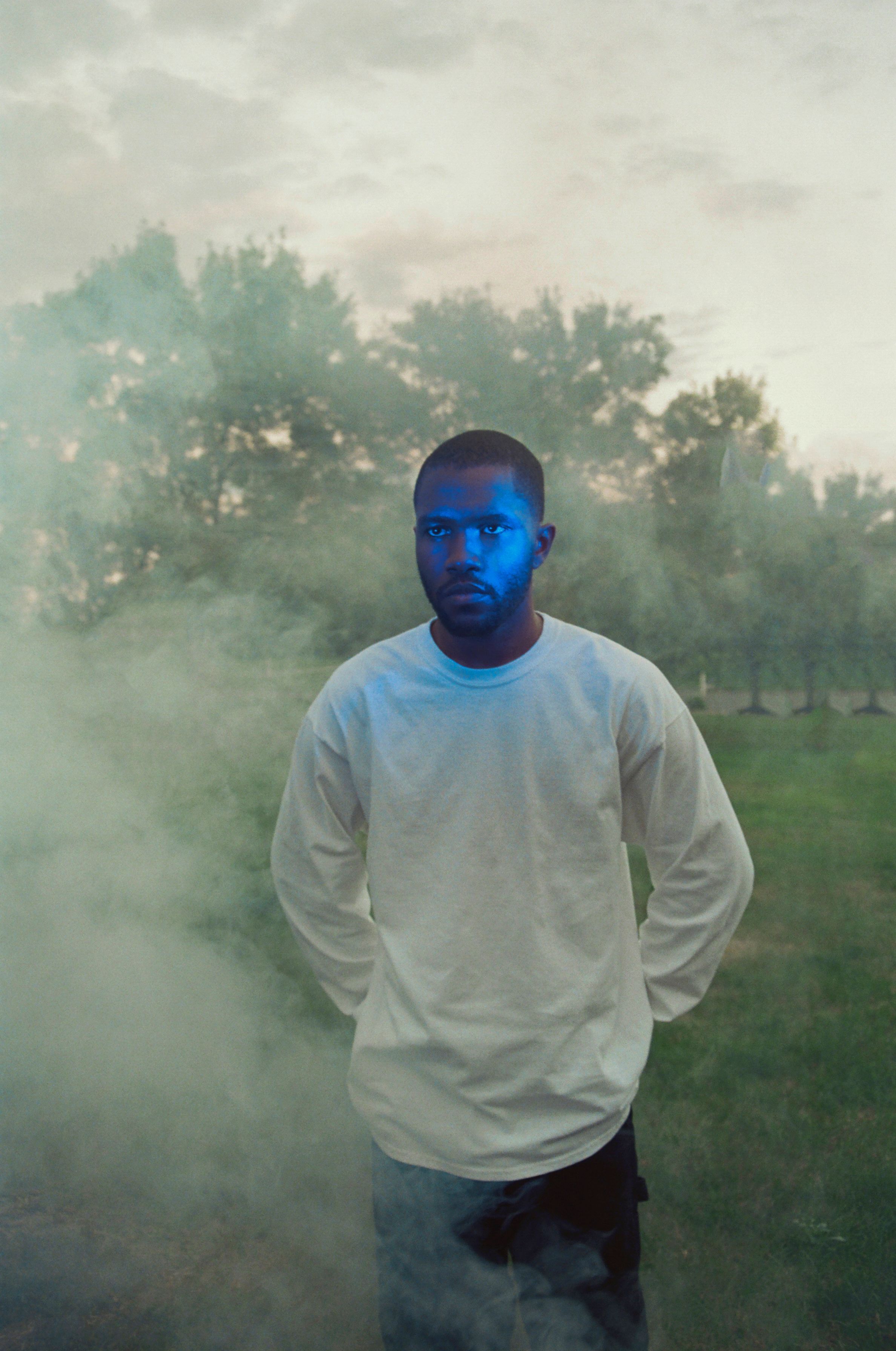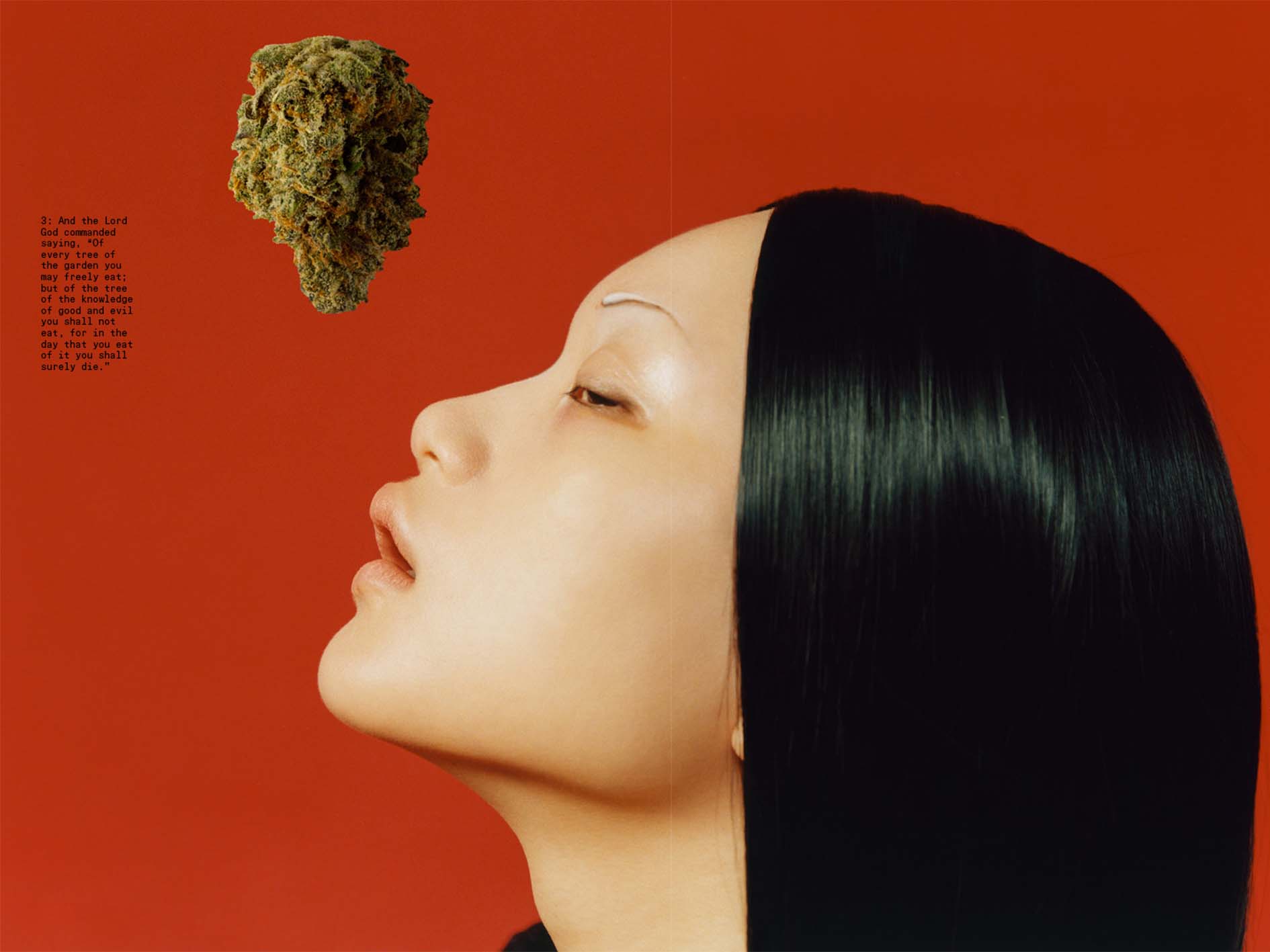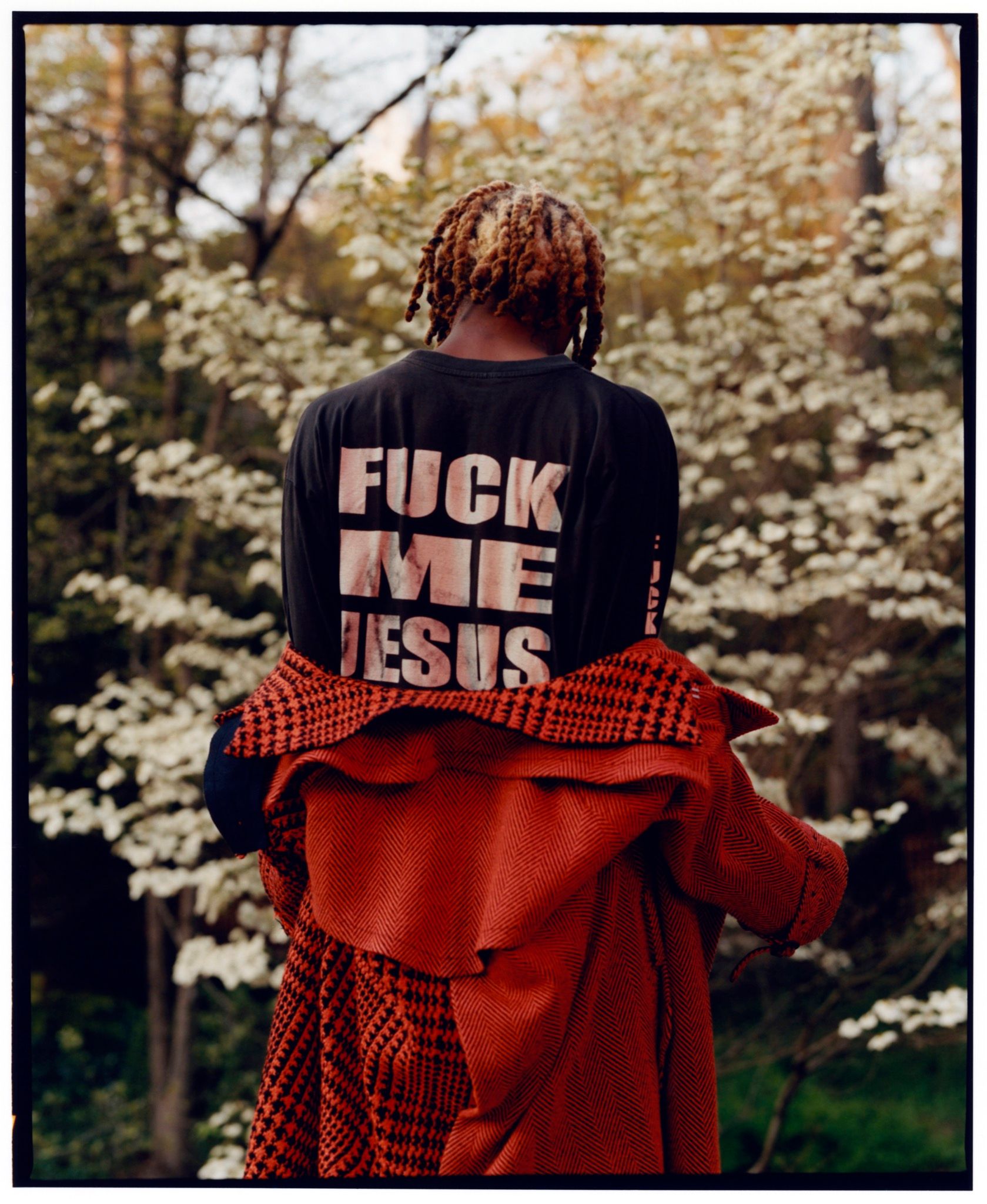The Second Coming of CL: K-Pop’s Rap Alpha
|Yoon Ahn
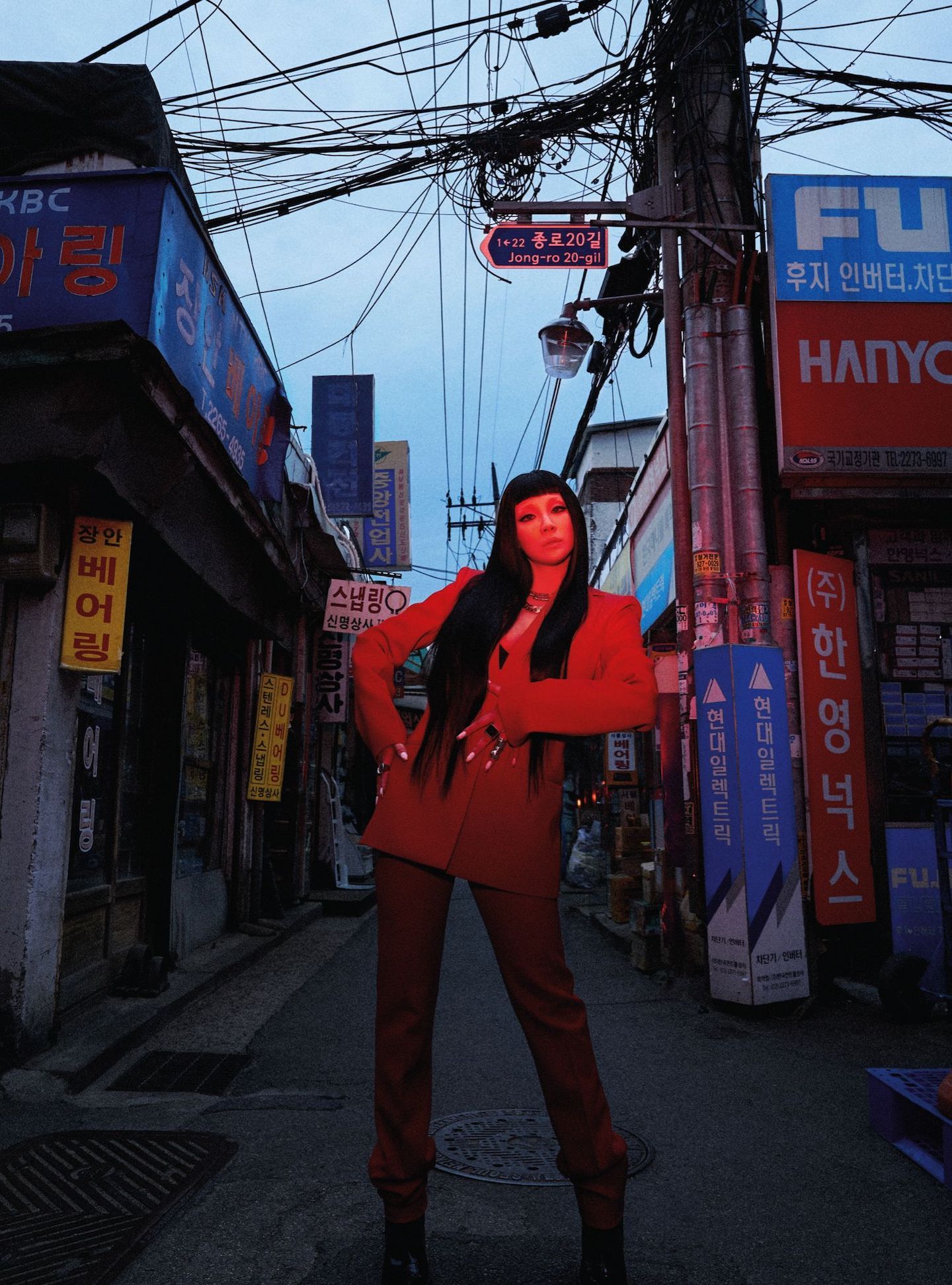
When K-pop girl band 2NE1 disbanded in 2016, YouTube was flooded with homemade compilation videos and reactions from mournful fans, and the #ThankYou2NE1 hashtag took the number-one spot on Twitter. Founded in 2009 under the YG Entertainment label, the group was among the first of its genre to receive press and audience attention in Europe and the US, and was known globally for its rebellious streak and atypically “tomboy, punk” attitude, in the words of CL, the band’s lead rapper. Five years after 2NE1’s official dissolution, and six years after her first entry into the US market as a solo artist, CL is at another turning point.
Earlier this fall, she released Alpha, a bilingual English and Korean album that deals with concepts of renewal, balance, and belonging – themes that arose when CL sat down with YOON AHN, the jewelry designer at Kim Jones’ Dior Men and founder of the streetwear brand AMBUSH. Ahn, like CL, has personal and professional ties to Korea, Japan, and the US – and to the music industry, her design career having begun with the creation of accessories for her husband, Japanese rapper Verbal, to wear on stage. The similarities do not end there.
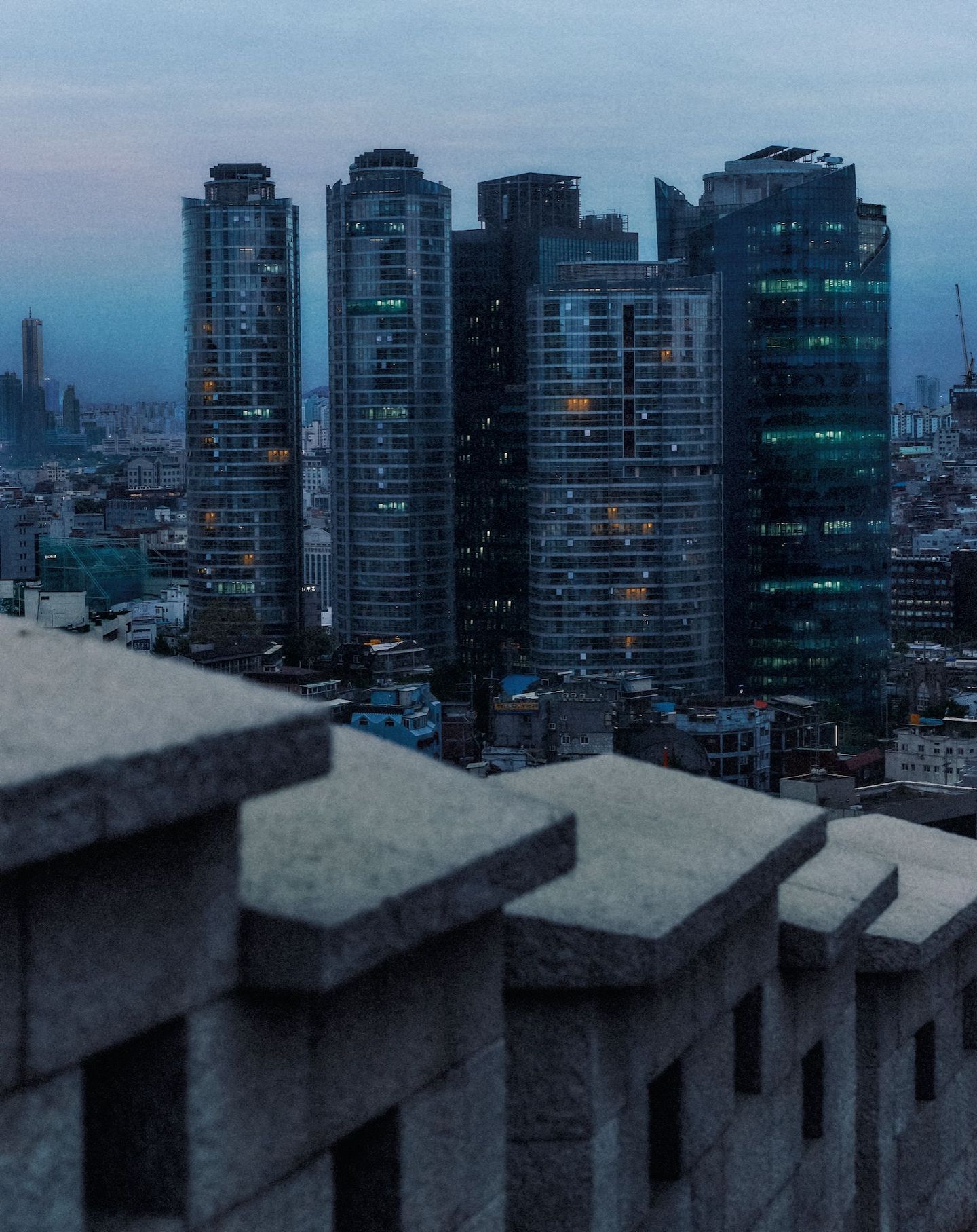
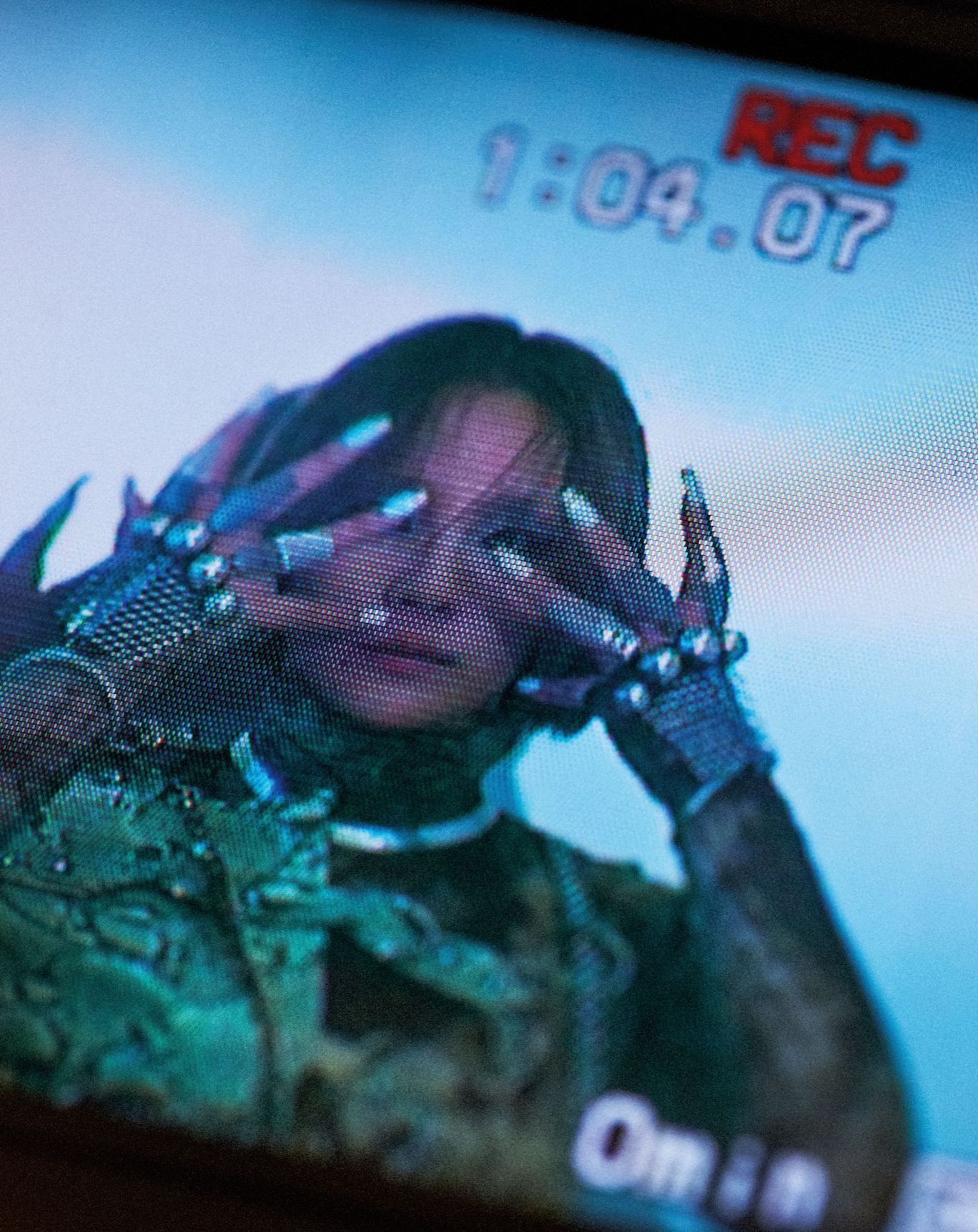
CLICK HERE TO BUY THE LAST COPIES OF THE CL COVER OF 032c ISSUE #39
YOON: Let’s talk about your background, just in case people are reading about you for the first time. You were born in Seoul but spent time in Paris and Tokyo, growing up. How has that international upbringing influenced your work?
CL: I don’t know, because I don’t know any other way. I was blessed to be able to travel a lot and experience different cultures, like you, but at the same time, sometimes I feel I’ve always been a misfit. You need to adjust to a new environment every time, so I learned how to do that quickly. There’s always the good side and the bad side, but every experience helps me express myself and just become who I am.
Where were you when you decided you wanted to get into music? Like, why K-pop – why not just do it … wherever you were at that time?
Honestly, I never thought of being a K-pop artist, or someone on stage. I started dancing when I first came to Korea from Japan, when I was around 10 or 11. I was really shy, and I didn’t know how to adjust – I just randomly started wanting to dance. And that’s how I started expressing myself. Because I’m not really good with words – I’m better expressing myself with my body. Dancing just came naturally to me. And when I started dancing, I met all these people connected to K-pop labels – it just sort of happens when you’re hanging out. I really liked the artists in YG, so that’s why I chose that label. I was, I don’t know, 14 or something, and I didn’t know what I was getting myself into. I was just happy to be at a studio every day, learning how to dance and move in different ways, and the vocal lessons and all those things were very exciting. That’s how it started.
Was it hard for you to adjust to Korea when you first got into it? It seems close, but it’s such a different world from Japan.
It was very, very tough. I think it’s also because of the age I was when I moved. The food was different. It’s not just like … going to your grandma’s in the summer, you’re actually moving there and not being able to eat the food you … grew up on.
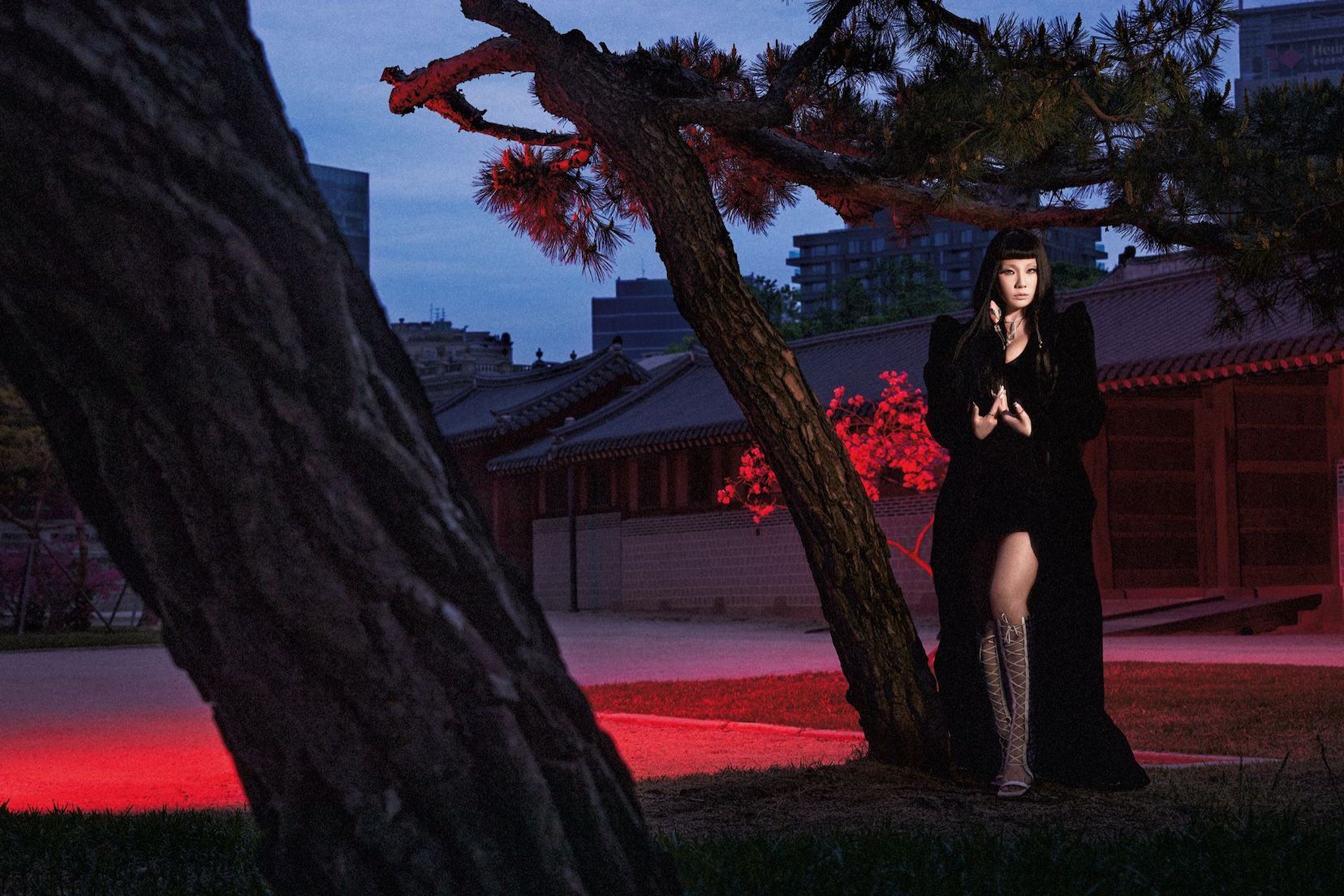
That’s something I can relate to, being Korean yet not really feeling like I’m fully Korean, because I lived in so many different places. I’m not in denial – I have a Korean name, right? From the outside we look like we fit in, but our software’s a little bit different.
What was the biggest challenge for you, moving to Japan?
I think it was actually moving to the US. I had to start in public school without one word of English. I was just thrown in there and I had to survive. And you know, trying to be a good Asian kid, to get good grades. But I think, looking back – man, I’m a survivor. People don’t understand how hard it is, thrown into that situation without understanding a word. Especially when you’re at that age, 13, 14, 15 – you’re going through your puberty, coming of age, figuring out your identity, and trying to find a place where you belong in a new environment.
Surviving is the perfect word – that’s what we went through, you know? I think you get addicted to it, to a level, too. For me, if I’m not traveling or not meeting new and different types of people, it gets boring.
So where do you feel most at home now?
It’s not a space, you know? I learned that very young. I don’t love staying at hotels – I feel like a zoo animal or something when I’m traveling and staying at hotels for a long time. So I’m not a fan of that. But I think it’s more about scent for me. If I had to choose a place, it would be my grandma’s house. That is the one place that has never changed throughout my life.
Speaking of changes, it’s not uncommon for performers in K-pop to start out as part of a large group, then branch out on their own. But you’ve had multiple phases to your solo career, on either side of being in 2NE1. What are the big differences, being a solo artist? Do you ever miss being in a group?
I was with 2NE1 24/7. I moved in with them when I was 15 or 16 years old and lived with them for almost 10 years. So, just not having that energy around is hard. You adjust to balancing your energy around it, like a role you play. Getting out of that, I was left feeling very empty. I decided to leave everything right after I closed the Winter Olympics in 2018. There was a lot of un-programming and un-learning to do. My solo career started with me going to LA, where I was doing different sessions every day, and I had to take all the meetings myself. The K-pop system isn’t like that. You don’t know what you’re doing, you’re thrown this schedule and project, and you just have to do it. I didn’t even know how to use a credit card or take a cab by myself.
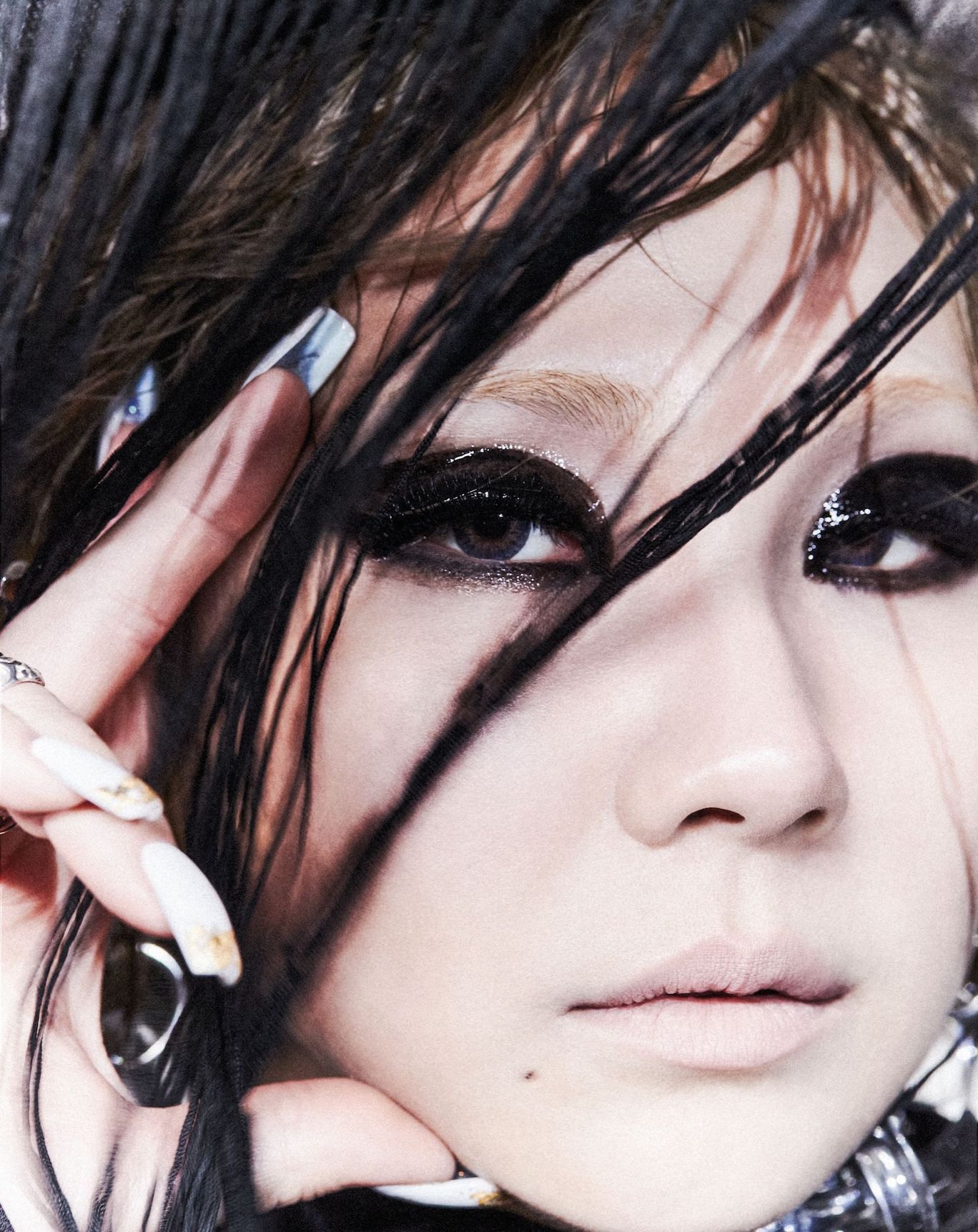
It seems like a lot of the Asian entertainment system is built that way. Artists don’t have the power; the management has the power.
And I don’t think I was ever that type of person to begin with. I was always, like, “I want to get out, I want to make sure I’m living my life.” I went out to New York, back when I didn’t know how to do all these daily lifestyle things, and that’s when I was like, “I need to learn how to do this. I don’t like how this feels.” Like you said, it’s a very dependent relationship that you are put into. When it comes to being creative, I felt like all my toys were taken away.
On that note, let’s talk about music. We all know 2NE1, my karaoke favorite. I sing it all the time.
Which I’ve never heard you do!
Really? We haven’t gone to karaoke? Like, seriously – the Japanese ones have you guys as live video. I turn it on, and everyone goes crazy. So I love 2NE1, obviously – but your US solo sound has a different attitude and vibe to it. What’s the new CL like ?
CL was an alter ego I created when I was younger to perform and just to express myself, but now I get to talk about my life and what I went through, what I’m going through. I think that’s the biggest difference. I came to peace with Chaelin, too: Lee Chae-rin. I don’t think people care about albums anymore, but I do, because it’s a work of art where this is my story. The In the Name of Love project was something I put out instead of an interview about how I felt getting out of the system, all those things. And now I get to share my real story with my fans. That’s the difference.
When you and Big Bang and 2NE1 were trying to go to the US, it was still quite early. I think the US market wasn’t ready for it.
Definitely not. When we first went on tour, our biggest fan base was in Brazil. I never got to perform there.
Brazil?
Yeah! 2NE1’s biggest fanbase lives in Brazil, but we never got to perform there because it was the first tour. They couldn’t communicate with the people there, you know?
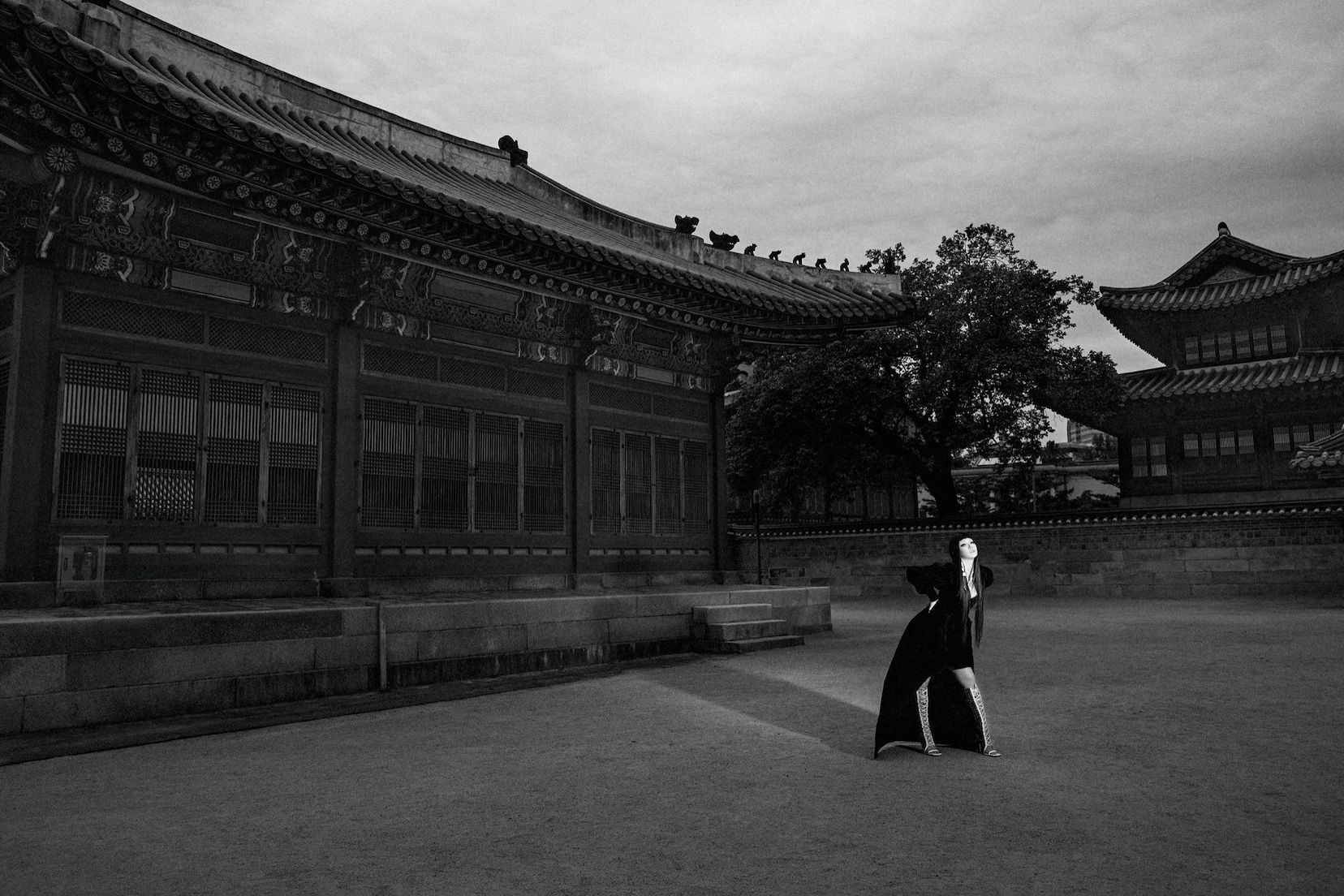
Paving the way is the hardest. You switch between Korean and English when you’re rapping and singing – do you find that your songs connect differently with Korean and international audiences? And does that affect your writing process?
I don’t ever think, “Oh, this song is going to be in English only, or Korean only.” We are both bilingual – it’s just more about the soul, right? Even if you don’t understand a word. If one language could deliver an attitude better than another, that’s when I decide to go with it.
I think music, especially – if it’s good – transcends language. You just have to make a fucking good melody. Like, good beats – that’s it.
It’s about how it makes you feel, you know? So I focus on that.
How do you connect with your fans right now?
It’s mostly social media these days. Especially because of Covid – I haven’t been able to do any shows in person, which I cannot wait to do. I took some time off from social media, too, when I was un-programming myself. But right now I feel like it’s a very important way to express myself. I started with YouTube, so I think my career was always very digital. That’s why, even though I’m in Seoul physically, I can still connect to international fans virtually and digitally. K-pop is international now, and I celebrate that to the fullest.
I don’t know about Korea and what’s happening there, but even in Japan, we still can’t do live shows. So it’s going to be over the Internet or whatnot. Is Korea back to normal? Can people perform together in arenas?
Not yet, not yet. It’s been shut down since early last year.
“CL was an alter ego I created when I was younger to perform and just to express myself. Now I get to share my real story with my fans. That’s the difference.”
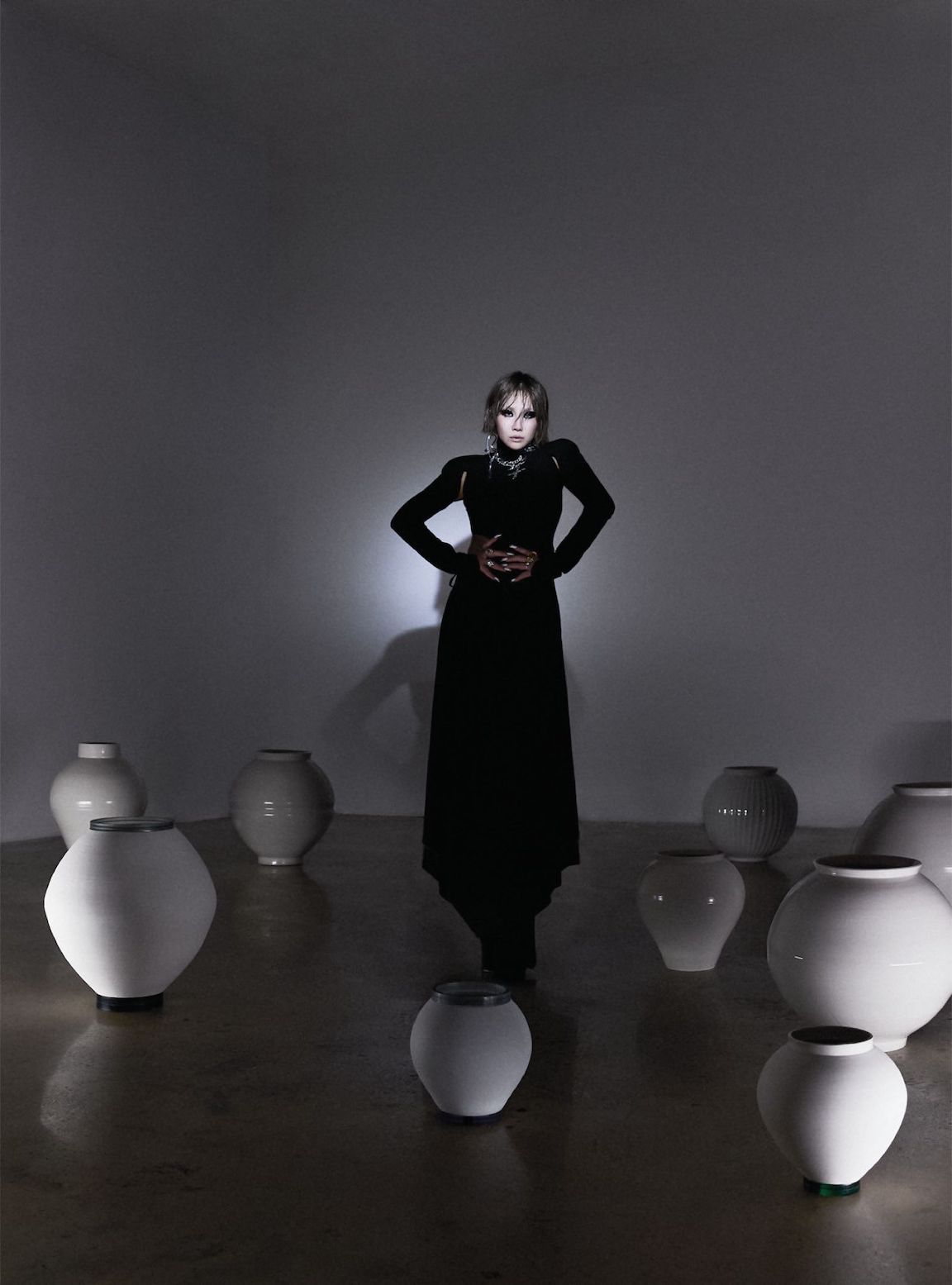
Being a performer, I’m sure you miss that energy of being in front of the audience and performing. How are you going to do that with the coming album?
I think performing is why this project is listenable and is able to have a message: the way I get inspired or even manage to finish the songs is just by imagining being on stage.
Is there anyone in the music industry who really inspires you or made you grow into the artist that you are?
Growing up, I always listened to female solo artists, whatever genre. The CDs I collected when I was younger were always from artists like Missy, Beyoncé, Lauryn Hill, Erykah Badu, Britney Spears. That was what I grew up on – very MTV era.
Maybe it was always meant to be that you would go solo eventually.
That’s what inspired me, and still does. But going from being in a group to being solo is a lot of work – a lot of heavy lifting. It’s also very rewarding. I’m a big fan of learning – I’ll do it until the day I die – so it was really rewarding to get to know myself a lot better.
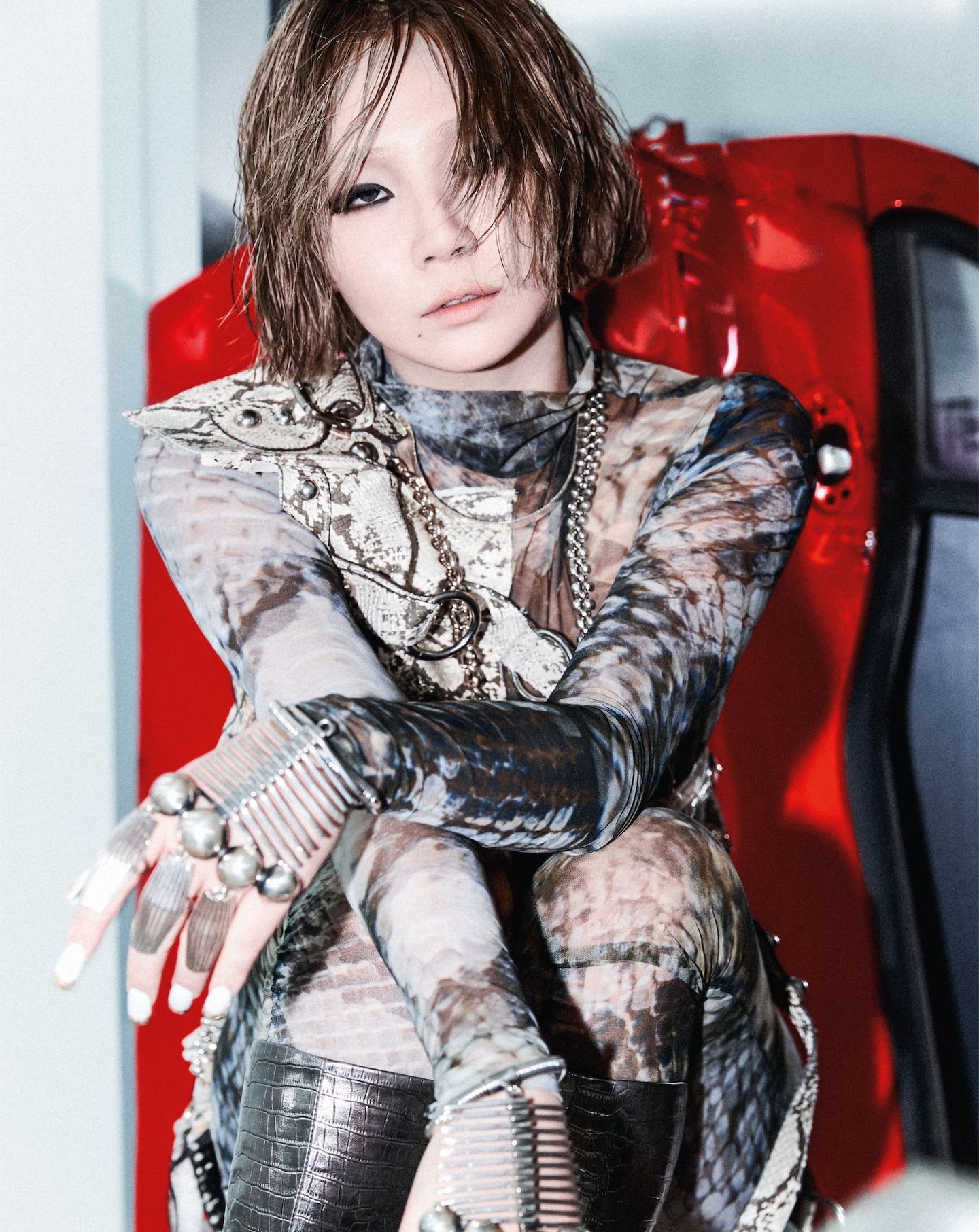
“I’m at the very end of a rebirth.”
What about inspirations in the fashion industry? Obviously, fashion is a big part of K-pop and performing in general; you love and respect fashion, and have close relationships with fashion designers – have these influenced your direction?
Well, you are a big, big, big part of that! I met you when I was so young, and I was always inspired by how you dress. When you would come to a show, you’d always be wearing, like, a mix of classic and punk – I was so inspired by that balance. For me, fashion is a part of expressing myself on stage, depending on the songs, or on the era and the face I am in. Jeremy Scott was a big part of expressing 2NE1s music.
I’m not sure.
Yes, you are! Yes, you are, you know it.
Speaking of fashion, all the celebrities are on it now, doing brands, whether it’s cosmetics or fashion brands. Are you thinking about any of that in future?
I’m not going to say, “No.” Before, I didn’t really have the option to even explore that, because I was in the system. But now that I can, I would love to.
Let’s talk about something very important. I want to talk to you about being Asian – not about being Korean specifically, but about being an Asian woman and doing what you do. Because subconsciously or consciously, intentionally or unintentionally, identity is always in the back of my head. I don’t want to box myself into this or that category – of Asian-American, or whatever. I don’t really have a “home,” and I’m an Asian person, which is a different experience. It’s not like I was brought up in one environment my whole life and I only know things one-dimensionally. But I always remember – I will never forget – where I’m from.
It’s exactly like you said: I’ve learned that I have to balance to make sure I’m not boxing myself in. Because sometimes that takes away from creating. When I’m creating, everything is out on the table and I’m open to anything. But the 12-year-old me, watching MTV and listening to all the solo female artists, I was like, “Why is there not an Asian figure that I could buy a CD of that’s doing pop music?” And that’s always been my motivation and who I want to be.
The attitude of it is an extension of 2NE1: we wore sneakers on stage and were very tomboy and punk girls. I want to continue that attitude because, like it or not, there are stereotypes of being an Asian woman, and I want to break away from that because there are different layers to us, too. I want to represent who I am and be fearless about what I believe in and what I’m inspired by, or what I want to change. I think you and I definitely have the same message there and that’s why I connect with you deeply.
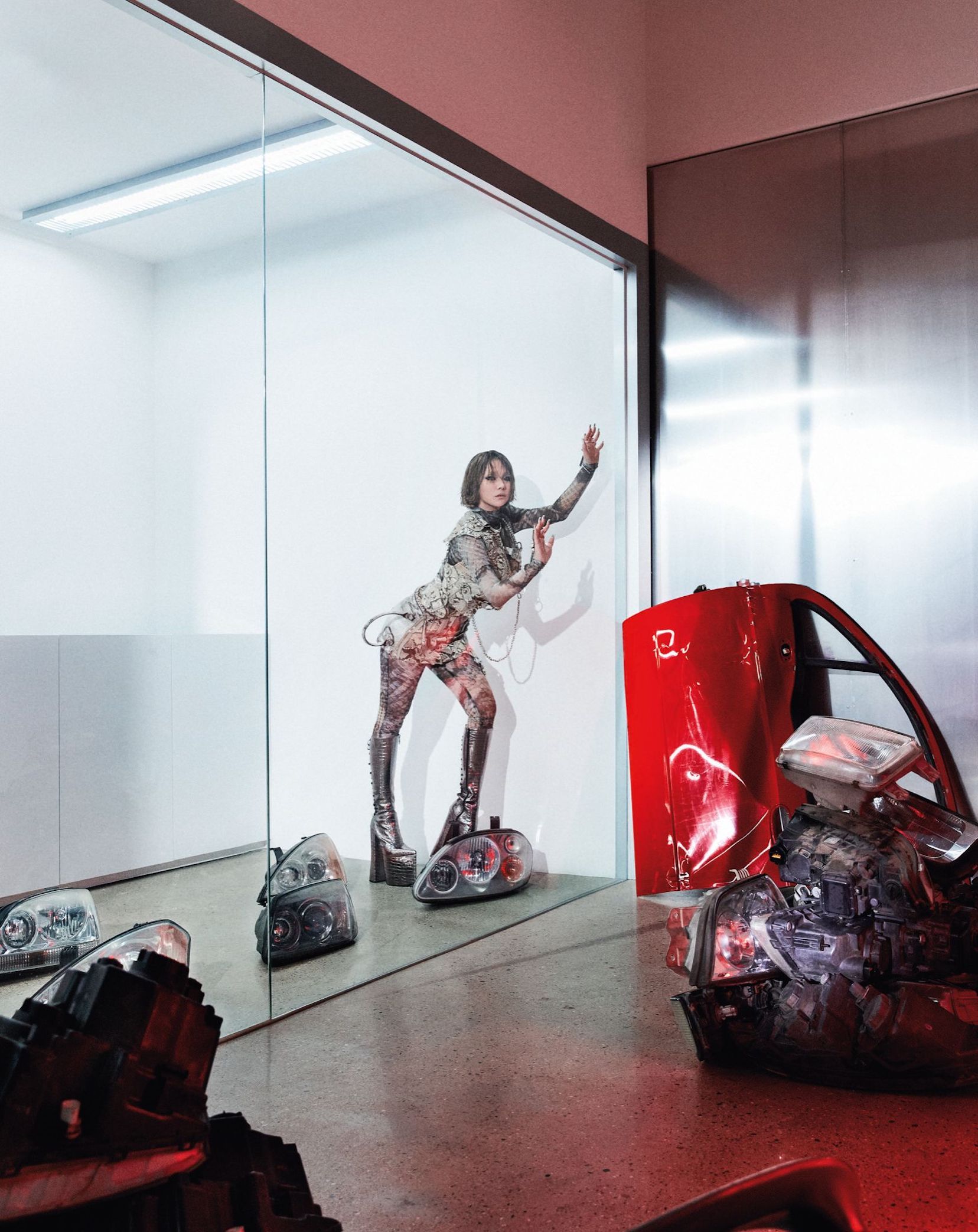
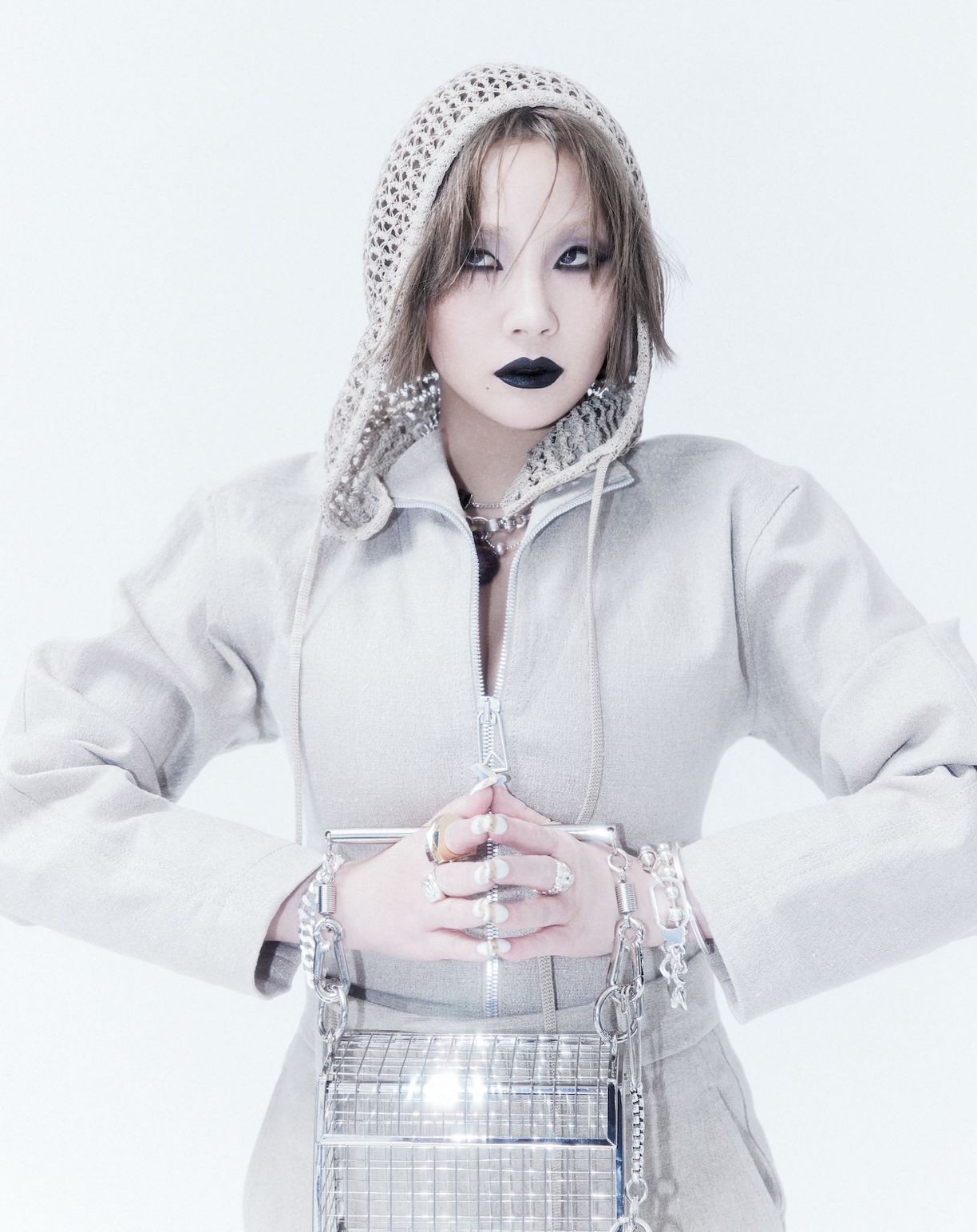
I really admire you for having that strength, knowing how K-pop can be. They expect you to act and do the same thing, and a lot of girls could look like cookie cutters. But you being you and bringing that uniqueness to it, I think it’s really inspiring a lot of us. I think that’s it’s inspiring a lot of people outside of Korea, as well.
I feel the same way about you. We just need to, like you said, continue to be ourselves and not be afraid to be different. Maybe we should build a foundation so a 12-year-old girl could be, like, “Okay, there’s a Yoon Ahn, and there’s CL – I could do that too.” I’m going to take a picture now.
I don’t like my top today.
Oh, I want to do the Korean thing. Cheese!
It’s so good talking to you. I’m so happy that you’re doing good.
I’m starting to. I’m, like, at the very end of rebirth.
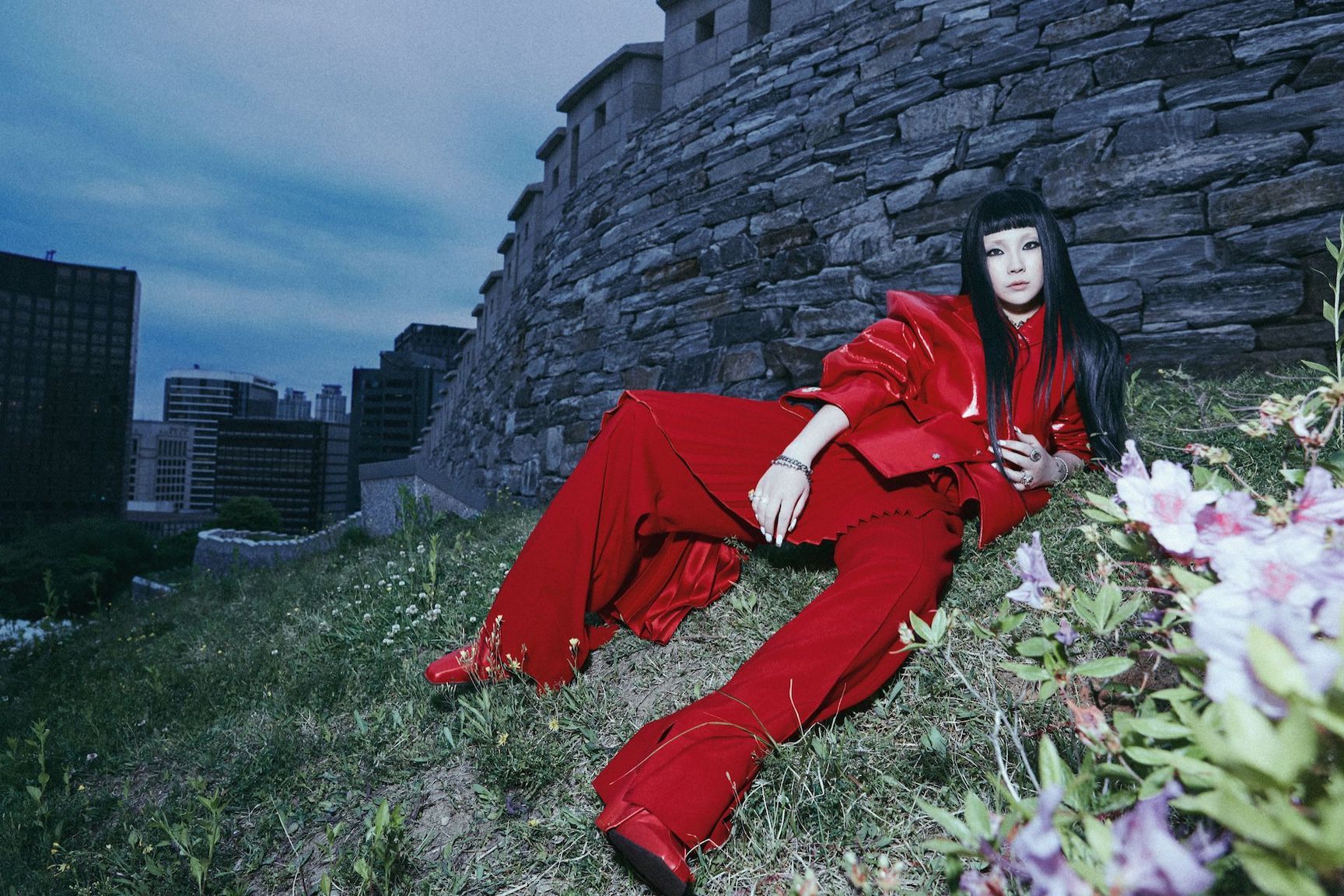
Credits
- Interview: Yoon Ahn
- Photography: Mok Jungwook
- Fashion: Kim Jaewook, Choi Bora
- Market Editor: Joy Bridges
- Hair: Lee Hyeyoung
- Makeup: Park Taeyun
- Cam: JIIN
